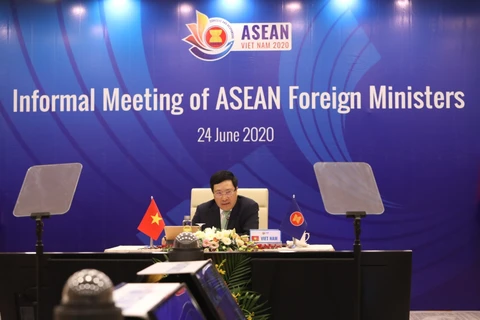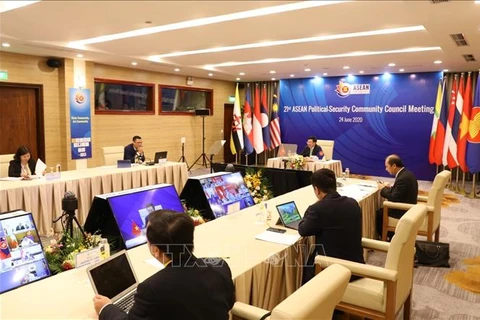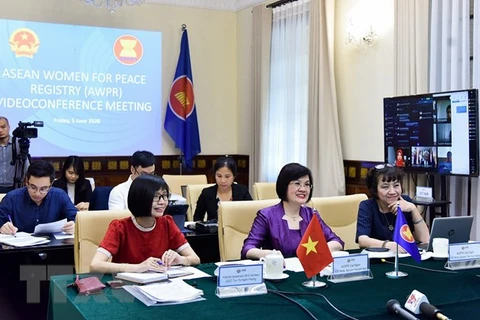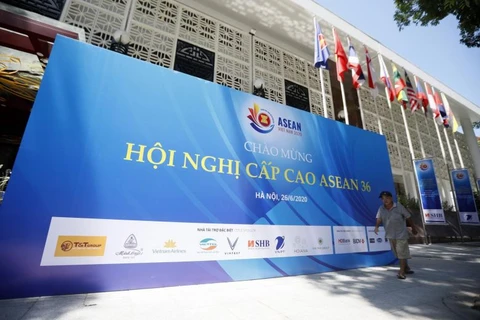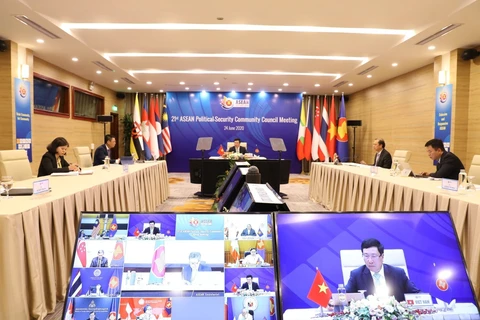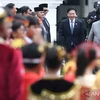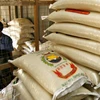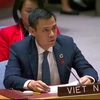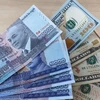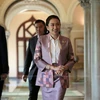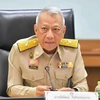 Deputy Prime Minister and Foreign Minister Pham Binh Minh chairs the 26th ASEAN Coordinating Council Meeting held online on June 24 (Photo: VNA)
Deputy Prime Minister and Foreign Minister Pham Binh Minh chairs the 26th ASEAN Coordinating Council Meeting held online on June 24 (Photo: VNA) Hanoi (VNA) – Vietnam is living up to its ASEAN 2020 chairmanship theme of “cohesive and responsive” amid challenges posed by the COVID-19 pandemic, tensions in the East Sea, and US-China trade tensions, according to a Singaporean-based scholar.
Vietnam’s relations with the rest of Southeast Asia have never been better, Yang Razali Kassim, Senior Fellow with the S. Rajaratnam School of International Studies (RSIS) at Singapore’s Nanyang Technological University (NTU), wrote in a commentary.
After 25 years in ASEAN, he wrote, Vietnam’s economy has developed rapidly. It is now one of the fastest-growing new economies in Asia. This positive change is widely acknowledged by ASEAN leaders. One of the engines of Vietnam’s rapid economic growth is its bilateral ties with the more developed ASEAN economies, especially Singapore.
The first time Hanoi took up ASEAN chairmanship was in 1998 - just three years after it joined the bloc, Kassim continued. As its confidence grew, it took up the rotating chair again in 2010 and this year for the third time.
ASEAN chairmanship is significant as it underscores the depth of trust and comradery the rest of ASEAN has in Vietnam, he said. As this year’s Chair, Vietnam’s objective is for ASEAN to be “Cohesive and Responsive”.
Cohesiveness refers to Hanoi’s aim to reinforce ASEAN unity and solidarity in the face of common challenges. Responsiveness was on display in relation to COVID-19, where Vietnam demonstrated its hope of giving ASEAN a large degree of resilience to shocks and crises, and the disease was certainly a major shock.
The pandemic was unprecedented, wreaking havoc globally and in Southeast Asia just as Vietnam took over the rotating ASEAN Chair. COVID-19 is no doubt the toughest of challenges and has been severely testing Vietnam’s role as ASEAN Chair. While the country has to rally ASEAN towards a common strategy to fight the deadly virus, it also has to take care on the homefront.
Vietnam’s firm prevention strategy eventually slowed down the spread of the disease, having just 342 confirmed cases and no deaths as of June 18. It is now being touted as a model for how to successfully manage COVID-19.
He further noted that Vietnam’s chairmanship suffered a setback when COVID-19 forced the postponement of the US-ASEAN Summit and the 36th ASEAN Summit, which were originally scheduled for April.
Amid lockdown throughout the region, Vietnam hosted the first teleconference of the ASEAN Coordinating Council Working Group on public health emergencies, on March 31.
It then hosted a virtual Special ASEAN Plus Three (APT) Summit on April 14 with China, Japan, and the Republic of Korea, which led to a decision to set up a joint fund to fight COVID-19. Singaporean Prime Minister Lee Hsien Loong emphasised how critical it was for ASEAN to mount a united response to the pandemic, “because of how connected and interdependent we are.”
Against the current exacting backdrop, Vietnam is hosting the delayed ASEAN Summit online on June 26, and the country will competently coordinate and marshal fellow member states to manage the challenges together./.
VNA
